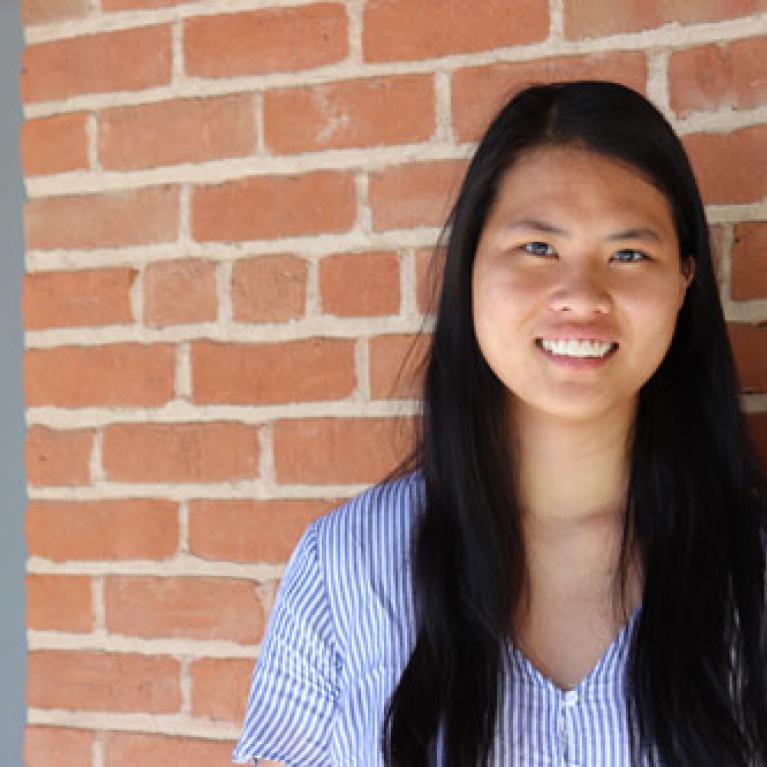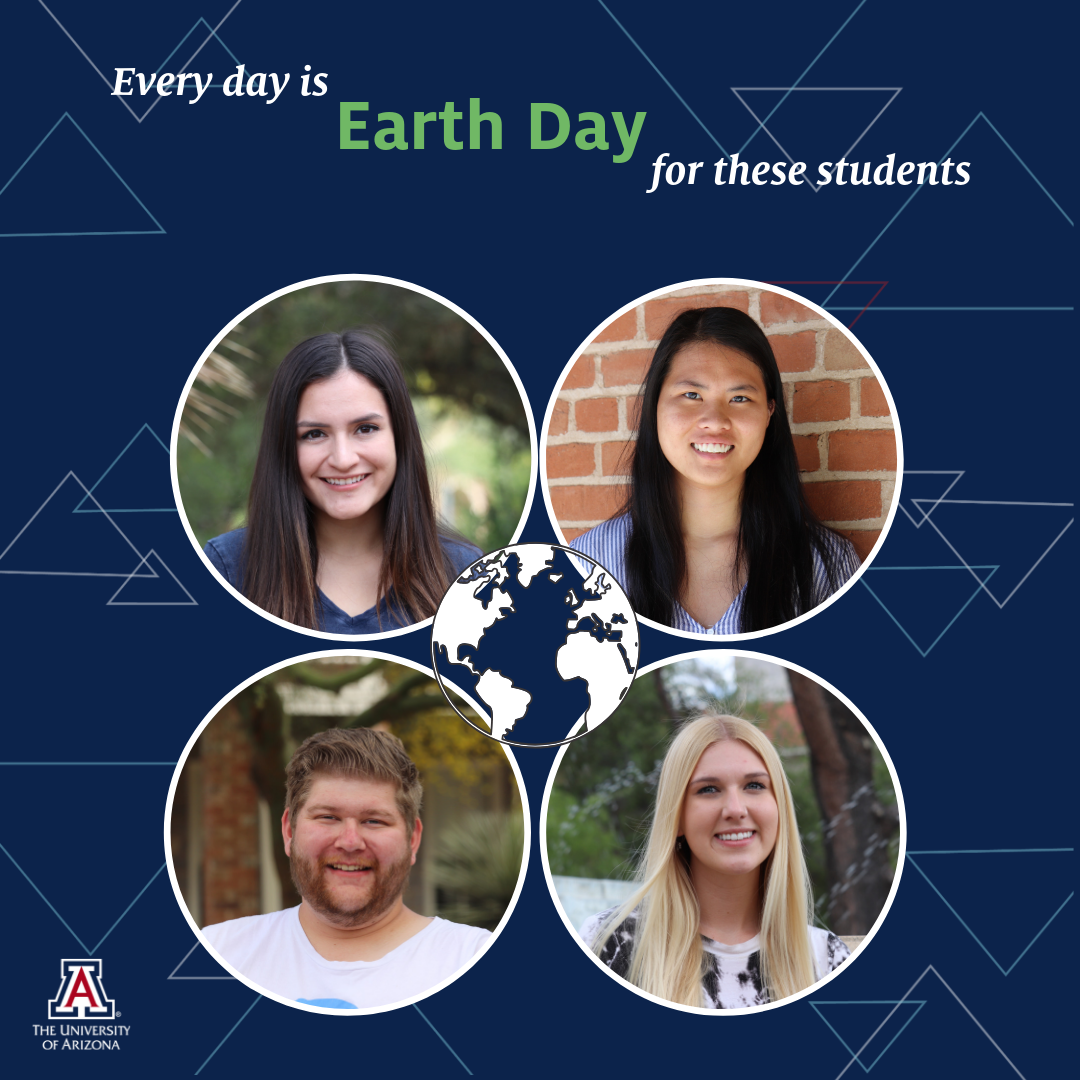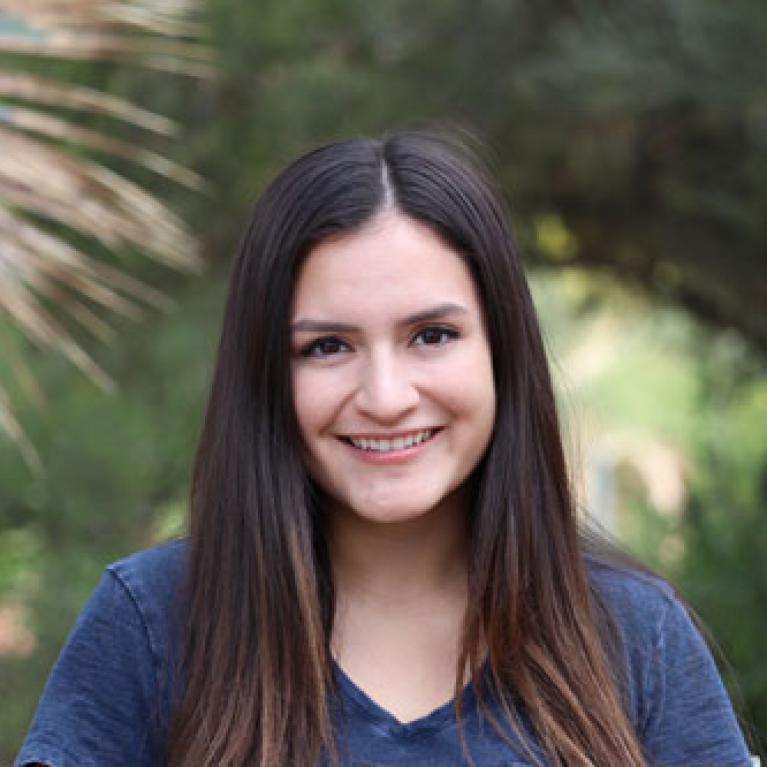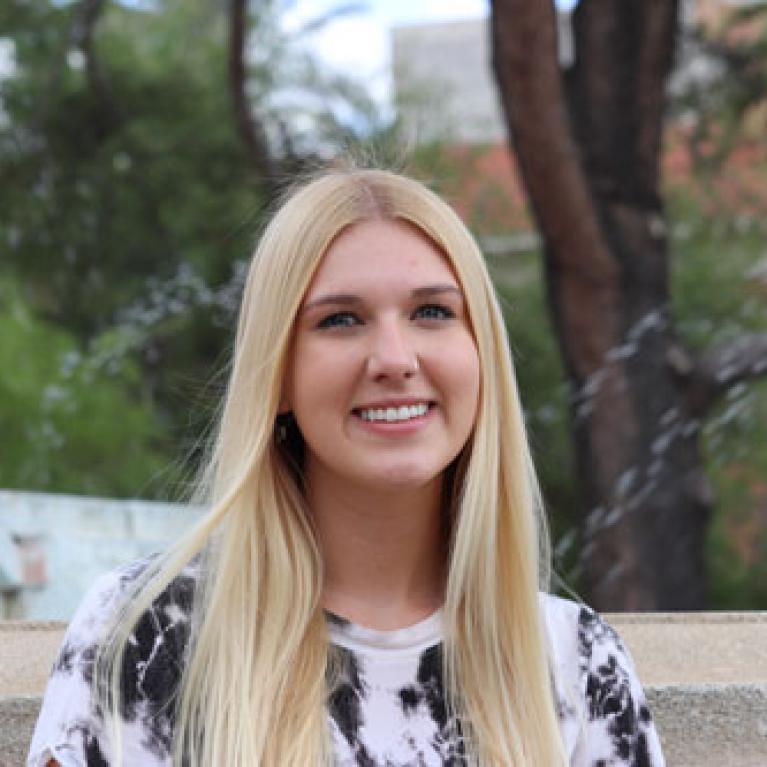Environmental Science Matters: Students Reflect
In celebration of Earth Day, we asked a few undergraduate students about their environmental science research and major
On Earth Day, many pause to think about the state of our natural world, from climate change to plastic pollution and endangered species. But our students researching think daily about how to tackle environmental challenges, including water quality issues, greenhouse gas emissions and mining reclamation.
We caught up with several undergraduate students who won top prizes for presenting their research at the 2019 EarthWeek at the University of Arizona, a celebration of the environmental research across five departments at the University of Arizona.
Karen Serrano, senior, Biology major with a Plant Science minor
Poster Title (1st place): Biogeochemical factors affecting phosphorus availability during revegetation of mine waste rock slopes
What do you like most about your major?
I like how broad my major is and how I am exposed to all different kinds of science.
What environmental science research did you present and why does it matter?
I presented on my work with mine site reclamation with Dr. Raina Maier’s lab group, specifically the bioavailability of phosphorus in the soil at an open pit copper mine. It is important to know how much phosphorus is available to plants in the soil so we can develop better practices to restore land degraded from mining.
What did you enjoy about University of Arizona EarthWeek?
I enjoyed presenting my research to a community of scientists that understand what I’m studying. It’s a chance to talk with people in my field that I might not otherwise see regularly.
What are your future plans?
I will graduate in May 2018 and will go on to pursue a Ph.D. in plant biology at University of California Berkeley.
Jamee Lyon, junior, Sustainable Plant Systems major
Poster Title (2nd place): The antimicrobial molecular composition of Sphagnum: how Sphagnum-specific compounds compare to those of medicinal plants
What do you like most about your major?
I like how diverse my major is—Sustainable Plant Systems is an interdisciplinary major between the Department of Environmental Science and the School of Plant Sciences. I get to learn about plant biology, water and general environmental topics. And then I get to apply what I learned in class with my research in Dr. Malak Tfaily’s lab.
What environmental science research did you present and why does it matter?
I presented on a study that looks at the antimicrobial characteristics of peat moss and how it relates to the carbon cycle and climate change. Peatlands are considered carbon ‘sinks’ since they suppress microbial activity and the degradation of organic matter in soil. We need to better understand the antimicrobial characteristics of peat moss as the climate continues to change and more carbon dioxide is released into the atmosphere.
What did you enjoy about University of Arizona EarthWeek?
It was my first time presenting my research in front of people. It was nerve-racking, but also really gave me a lot of confidence. It was validating to have other people be interested in what I study.
What are your future plans?
I plan to go to Southwest College of Naturopathic Medicine in Tempe, Arizona, to become a naturopathic doctor after finishing my degree at the University of Arizona. I have big goals like having my own practice and formulating supplement blends for my own brand.
Justin Clark, senior, Microbiology major
Poster Title (3rd place): Identification of sources of fecal contamination in irrigation waters for production of leafy green crops in Arizona
What do you like most about your major?
I enjoy working with microbes and helping figure out issues with agriculture, as well as helping test newly developed products to see if they work as intended.
What environmental science research did you present and why does it matter?
I presented on research that investigates potential sources of contamination with foodborne pathogens in irrigation waters using genetic markers associated with fecal bacteria unique to cattle, swine, birds, and humans. Irrigation water has been implicated as a major source of pathogen contamination in leafy greens. We need to understand where fecal pollution comes from so we can stop the transmission of disease.
What did you enjoy about University of Arizona EarthWeek?
It was very helpful to present research in front of faculty and other students. I got some great tips from everyone on how I can better communicate my research and what I can do differently in the future.
What are your future plans?
I am graduating in May and will continue working in Dr. Chuck Gerba’s lab for the next few months. I’m looking to go into graduate school.
Lia Ossanna, senior, Environmental Science major with a focus in physics and chemistry
Ossanna_Lia_Undergrad_IMG_9804_500x333.jpg

Oral Presentation Title (2nd place): Nitrogen dynamics as an indicator of mine waste revegetation progress
What do you like most about your major?
I enjoy conducting research with Dr. Raina Maier’s lab group.
What environmental science research did you present and why does it matter?
I presented on my work that looks at nitrogen dynamics in the soil of an open copper pit mine being restored. It’s critical to understand nitrogen in the soil and how it correlates with plants so we can develop environmentally sustainable practices to restore land disturbed by mining.
What did you enjoy about University of Arizona EarthWeek?
I presented my research last year during SWESx, so presenting again this year gave me an opportunity to improve my presentation.
What are your future plans?
I will graduate in May 2018 and go on to work full-time in Dr. Raina Maier’s lab for the next year while I apply to graduate school.





